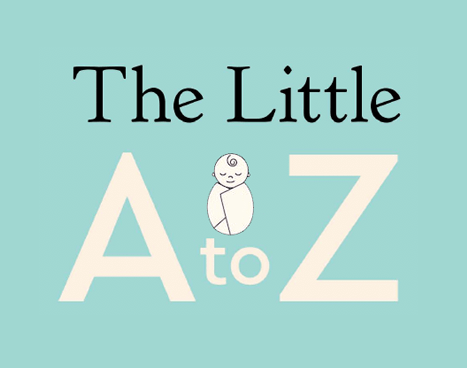Blog Layout
Organising projects
Rachel Perks • Apr 29, 2021
Keep your creative projects on track with these organisation tips

Hello! Happy Thursday everyone.
Today will be the first Q&A. The question came in from someone who is a writer, so the focus of the response is more geared towards writing projects. But I am sure the tips could be applicable to any type of endeavor.
How do you organize yourself to move forward with projects and goals?
I’d like to give some further context to this person’s question. She is an accomplished professional in her field, having recently taken on a new full-time position while completing the write up of her PhD. She writes fiction on the side, all the while with 3 kids to raise. Having lived with her in university, I know she is a night person who cranks out her best work after 8pm, most likely after the kids go to sleep. So we can appreciate that she has little free time and therefore has to be smart in how she uses it. Does her situation sound familiar?
Projects are wonderful. They represent great creative outlets, turn our minds outward, and can help us to build new and different networks outside of work and our family relationships. But projects also require some level of planning which can be tricky to achieve with the bustle of modern working parent life.
Rather than looking at it in one big gulp, I find it useful to break down the idea of “organizing” into 4 main issues:
Identify the project (and don’t be afraid to re-evaluate it continuously)—this may seem like an entirely self-evident step but it is useful to consider for a moment the project you wish to undertake. First and foremost, you should really be excited about it—the topic, the content, the outcome—because you are going to be working on it for a while and devoting your few free moments outside of your regular responsibilities to accomplish it. Having a big sketch book helps me. I am a huge fan of mind mapping to put ideas down about different projects. Secondly you shouldn’t assume that how you feel about the project will remain constant. I had been dreaming about doing a podcast ever since I published my book. I have considerable content crafted out, a tagline for the show, etc. But for a few weeks now I’ve been really struggling with getting motivated. Why? Because there are so many other looming house projects that require my attention and I need to be careful about where I am putting my energies. So just this week, I’ve reoriented the podcast project to fit with where I am at right now. And I feel absolutely fine about that.
Carve out the time—time management always seems to get us down. Whether it is managing your working hours of your day job or your personal time. One tool that I came across when I was writing The Little A to Z was this Weekly Planner spreadsheet (I love this one from Kimberly Wilson but there are millions of them out there). I find this worksheet useful when you are trying to figure out where to squeeze in time. First you fill it out simply as a process of observation for the first week (or perhaps two) then you look at where you can carve out the time you wish to undertake new things (or modify how you wish to spend your time differently). And you record those changes on a new work sheet. A drastic example could be that you observe how you are staying up late to binge watch the latest Netflix series and thereby going to bed late, and getting up just as your kids do in the morning. By cutting out the TV, you could get to bed earlier or work on your project; and / or get up earlier to work on your project. From personal experience I think it is easier to find those free moment when your kids still nap. I did a lot of writing when our son was still napping. Once he dropped his last nap, I struggled for quite a while to find writing moments, and had to learn to get up earlier and earlier, or to become a night writer which I wasn’t before.
Set a timeline and “To Do” list—timelines motivate some people but may stress others out. So it’s up to you how you wish to use them. I personally love timelines. I hate not doing something when I said I would, so having deadlines really keeps me on track. In the same sketchbook as the one I use for mind mapping, I’ll lay out a project timeline with details about all the milestones and actions required around each one. It need not be super detailed but gives me a sense of the big items involved in each milestone. Then in my planner, I set up my weekly “To Dos” that relate to the specific milestone I am working on. Now that life has a bit more elements in play (work, husband, child, two puppies), I find having someone to be accountable to in terms of my project product is helpful. It could be a friend you call once a week, it could be your partner, or it could be a writing teacher or coach. The important bit is accountability—just feeling like you have to check in with someone might help you to keep on track.
Create the substance, consistently—once you’ve found some space in your packed day to devote to your project, get there. A rule of thumb which I absolutely take to heart is the 15 minutes rule. Rome wasn’t built in a day. But it probably did require people showing up every day to work on it. 15 minutes is a really helpful way to set your own commitments realistically (who doesn’t have 15 minutes?) so that you can encourage yourself when you do accomplish it. For instance, this newsletter took initially 15 minutes to write before my son woke up on Monday morning. Then it took me another 3 x 15 minutes slots to edit and add the resources. The important bit, like I mentioned in last week’s newsletter on personal passions, is that you keep showing up. Writing is like any exercise activity: you have to nurture it, keep at it, and build a memory muscle for it.
A couple last things on getting organised, from one writer or creator to another:
Don’t be hard on yourself. Sometimes you need to binge watch TV or binge read or simply not be mentally engaged in your writing. My father, who was an academic and therefore spent a lot of time writing, was always great at reminding me about that. You need to give your mind a break. So if you lose interest, take a huge step back. Get someone to proof read what you have. Do some further research on the topic. Or simply disengage for a while until you feel it calling you back.
Prioritise your project (even if only for those 15 minutes): how many times do I catch myself with some few minutes in the day and I reflexively go to unload the dishwasher, sweep the floor or put on a load of laundry. Resist the urge. Put in the time on your project first. The dishes can wait.
PS: I have some really handy resources on all this stuff. Due to lack of time (ahem) I didn't put them all in. Just reach out and I'm happy to share some books with you.
Share
Tweet
Share
Mail









